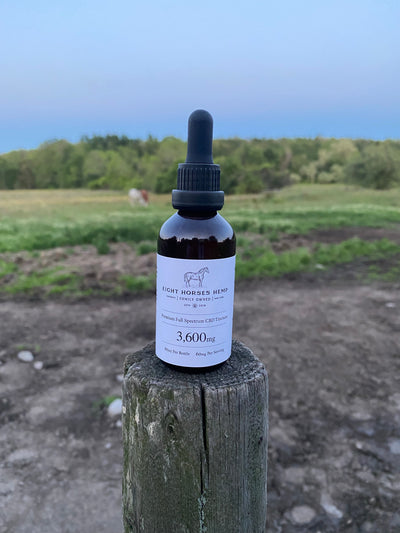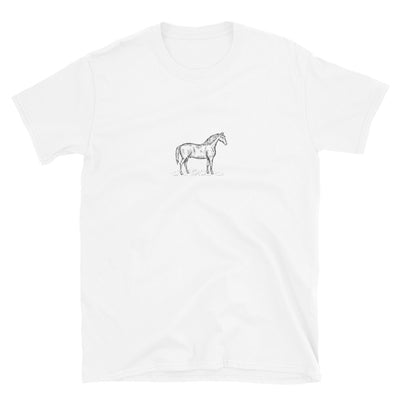CBD Oil, CBD Hemp Flower, & Drug Tests
“Will CBD and other hemp products show up on a drug test?” is probably one of the most asked questions by potential users right now. There is no definite answer to that question, so I will leave you with a “maybe”. It’s definitely possible, but not guaranteed, so it’s best to err on the side of caution if drug testing is something you're worried about. There are multiple factors that contribute to it, which we’ll go into deeper.
Currently, there aren't any known tests that test specifically for CBD, and there aren't any known jobs or employers that test for it, however that doesn't mean that there absolutely aren't any, so do your research before risking anything. Remember, CBD is a non-psychoactive cannabinoid, so most employers or government agencies don’t have a focus on it. THC is the main concern, and that's what drug tests are looking for. Hemp flower does have THC in it, but only in small amounts. That doesn't mean that it wont make you fail a drug test though.
Legally, and for hemp flower to qualify as “hemp” and not “marijuana” to the federal government, it must have .03% Delta9 THC content or lower. Compared to traditional high THC cannabis flower, this is an extremely small amount, but it can still show up on a drug test, depending on many different factors that determine how long those trace amounts of THC and its metabolites are stored in the body.
Drug tests don’t actually look for the drug itself, but rather metabolites from your body processing it. Both CBD and THC are oils that are fat soluble, meaning they absorb into your body's fat instead of passing quickly through your urine. When you consume cannabis, the cannabinoids in it are metabolized by your body and broken down into over 80 metabolites. This process begins in the liver, where THC is broken down into these metabolites. One of the main metabolites it is broken down into is 11-OH-THC(11-hydroxy-delta-9-tetrahydrocannabinol) and THCCOOH
nor-9-carboxy-delta-9-tetrahydrocannabinol). These metabolites are specifically what most drug tests are looking for.
Since cannabis metabolites are fat soluble, they are absorbed into the body's fat stores and take much longer to exit the body than other substances that are water soluble. This is why you can test positive for cannabis weeks after using it. How long it exactly stays in your system is dependant on many factors such as the potency of the flower you used, how much you used, the method of ingestion (edibles, tinctures, smoking, vaping), how fast your metabolism is, your weight and height, and how active of a lifestyle you have. If you occasionally use an average amount of hemp flower, the chances of failing a drug test is slim to none. The minuscule amounts of THC are too small to build up in most people. If you are someone that frequently uses hemp flower (daily use for example), the chances of the trace amounts of THC staying in your system goes up.
There are different methods of drug tests that can also impact the chances of you passing or failing the test. The most common form is a urine test, which tests for drug metabolites in your urine. This is the most cost effective test used, but it can also come with false positives. Its also easier to flush your system of THC before taking it. Another popular method of testing is a hair follicle test. In this test, the test administrator collects a sample of hair from your scalp to test for signs of drug metabolites. This test is easier to fail because it can show drug use for up to 3 months. The hair follicle test is more accurate than the urine test but it’s still not 100%. Some factors that influence the results can be the quantity of substances used, the pigment of your hair, how much you sweat, and if you’ve bleached or colored your hair recently.
The least common and most expensive method, but also the most accurate is the blood drug test. With this test, the test administrator directly draws blood from your veins and tests it. Its not commonly used because of its high price and invasiveness, also because of its short window of detection. Blood tests can usually only detect substances used within the last 6 hours, however, blood tests can detect the actual parent parent substances or drugs, and not just the metabolites like with other testing methods.
There are things you can do to potentially influence the results of your drug test, especially a urine test. Since urine tests look for drug metabolites in urine, one way to ensure a negative test is to drink lots of fluids so that the urine is diluted past the point of testing. Drink plenty of water, and while you do, there are theories that vitamin B-2 might color your urine yellow, since watery urine may be a sign of someone trying to beat it. There are many rumors and products of potential “cheats” but none are truly proven and some may even be dangerous, so use at your own risk. Also make sure to never give a urine sample with your first urination of the day, as metabolites tend to build up in your urine while you sleep. Exercising frequently prior to the test administration may help you clear out your system, as metabolites can be flushed out of the body via sweat.
In summary, there is no definitive answer to whether or not using hemp flower will you make you fail a drug test. There are just so many factors that contribute to every variable that its impossible to give blanket answers for everyone. Remember to take into account the amount you use, the frequency of use, the potency of the flower, how active you are, and what kind of test is being administered. The risk is ultimately up to you.




